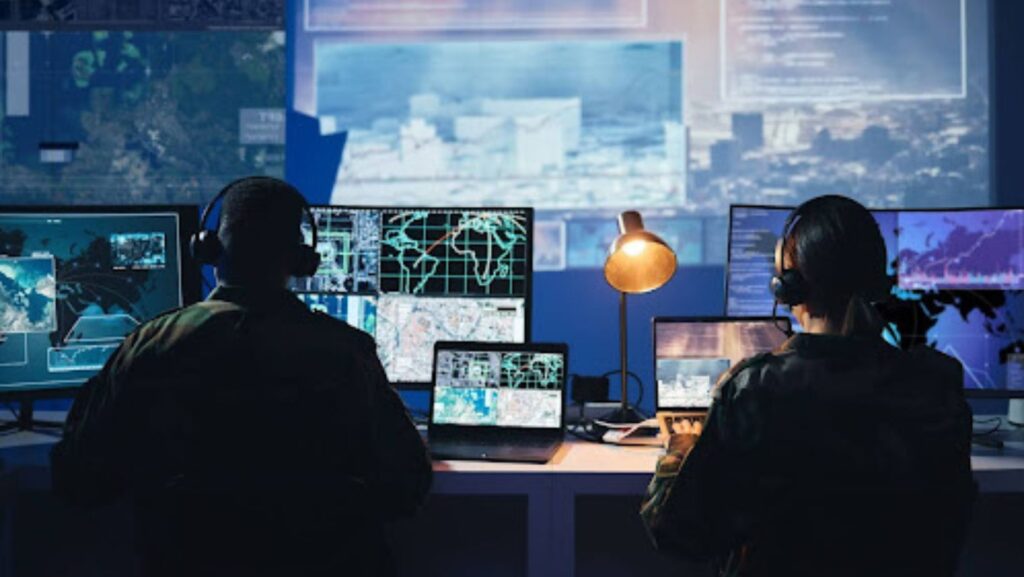
In today’s interconnected world, where gaming has evolved into a massive online phenomenon, there’s an unseen force working tirelessly behind the scenes—cybersecurity. While stunning graphics and compelling narratives captivate players, the critical role of cybersecurity often goes unnoticed.
However, as games grow more complex and data-driven, the need for robust cybersecurity measures becomes paramount. Known for its deep dive into gaming and software development, offers a perfect lens through which to examine how cybersecurity fortifies the foundations of modern gaming, ensuring a safe and enjoyable experience for both developers and players.
The Rise of Cyber Threats in Gaming
The Expanding Digital Playground
As gaming transitions from isolated experiences to global online communities, the potential for cyber threats has increased exponentially. Today’s games often involve millions of players interacting in real time, creating vast, interconnected networks that are ripe for exploitation by cybercriminals. The open nature of these platforms, while fostering community and collaboration, also makes them vulnerable to attacks.
Common Cybersecurity Threats in Gaming
Data Breaches: Gaming platforms collect and store massive amounts of personal data, from usernames and passwords to payment information. When this data is not properly protected, it becomes a prime target for hackers. Data breaches can result in significant personal and financial losses for both players and developers, eroding trust in the platform.
DDoS Attacks:
Distributed Denial of Service (DDoS) attacks are designed to overwhelm a game’s servers with traffic, rendering it unusable. For multiplayer games, this can lead to widespread disruption, frustrating players and damaging a game’s reputation.
Malware and Phishing:
Cybercriminals often target both players and developers with malware and phishing schemes. Malware can be embedded in seemingly harmless game mods or downloads, while phishing schemes may trick users into revealing sensitive information, such as login credentials or credit card numbers.
Why Cybersecurity Should Be a Priority in Game Development
Protecting Intellectual Property
Game development is a highly creative endeavor that brings to life unique ideas, characters, and worlds. However, this website emphasizes the critical role of cybersecurity in protecting these creations. Intellectual property (IP) theft is a significant threat, potentially leading to financial losses and reputational damage. Implementing strong cybersecurity measures, such as secure coding practices and regular security audits, is essential to safeguard these valuable assets and ensure the integrity of the development process.
Ensuring Player Trust and Safety
Players expect their personal information to be protected when they engage with a game. A breach in security can lead to the loss of sensitive data, such as credit card details, which can result in financial harm to the player.

More importantly, it can shatter the trust that players have in the game and its developers, leading to a loss of the player base and potentially significant financial losses.
Regulatory Compliance
As the gaming industry becomes more global, developers must navigate an increasingly complex landscape of data protection regulations. From the General Data Protection Regulation (GDPR) in Europe to the California Consumer Privacy Act (CCPA) in the United States, failing to comply with these laws can result in hefty fines and legal repercussions. Incorporating cybersecurity into the development process ensures that games are compliant with these regulations, protecting the company from legal risks.
How Developers Can Enhance Cybersecurity in Games
Building Security into the Game Design
Security should be integrated into the game development process from the very beginning. This involves adopting secure coding practices, conducting regular security audits, and implementing strong authentication methods. By addressing security concerns during the development phase, developers can identify and mitigate potential vulnerabilities before they become critical issues.
Utilizing Encryption
Encryption is a key tool in protecting sensitive data. By encrypting player data both in transit and at rest, developers can ensure that even if data is intercepted, it cannot be easily accessed or used by unauthorized parties. Encryption also helps to maintain the integrity of data, preventing it from being altered or tampered with.
Educating Players on Cybersecurity
While developers can implement robust security measures, players also play a crucial role in maintaining security. Educating players on best practices, such as recognizing phishing attempts, using strong and unique passwords, and avoiding unofficial game mods or downloads, can help to create a safer gaming environment. This education can be delivered through in-game tutorials, community forums, or direct communication from the game’s developers.
Case Studies: When Cybersecurity Saved the Game
The Sony PlayStation Network Breach
In 2011, the Sony PlayStation Network (PSN) was breached, resulting in the compromise of over 77 million user accounts. The breach exposed personal information, including names, addresses, and credit card details, leading to a massive public outcry. The incident served as a wake-up call for the entire gaming industry, highlighting the critical importance of cybersecurity. In response, Sony overhauled its security measures, implementing stronger encryption, two-factor authentication, and more rigorous security protocols.
The Fortnite DDoS Attack
In 2019, Fortnite, one of the world’s most popular online games, experienced a series of DDoS attacks that disrupted gameplay for millions of users. The attacks highlighted the importance of robust server security and the need for rapid response mechanisms.

Epic Games, the developer behind Fortnite, responded by bolstering their server infrastructure, implementing advanced DDoS protection measures, and increasing their monitoring capabilities. The incident underscored the necessity of continuous vigilance and proactive security measures in the gaming industry.
Conclusion: Fortifying the Future of Gaming
In the ever-evolving landscape of gaming, where innovation and creativity drive success, cybersecurity stands as the silent sentinel, protecting both developers and players from an array of digital threats. As games become more interconnected and data-driven, the need for comprehensive cybersecurity measures grows ever more critical.
With a focus on cutting-edge game development, it serves as a reminder that in the digital age, security is not just a feature—it’s a fundamental necessity. By prioritizing cybersecurity, developers can ensure that their games not only entertain but also protect, creating a safe and secure environment for all who play.

